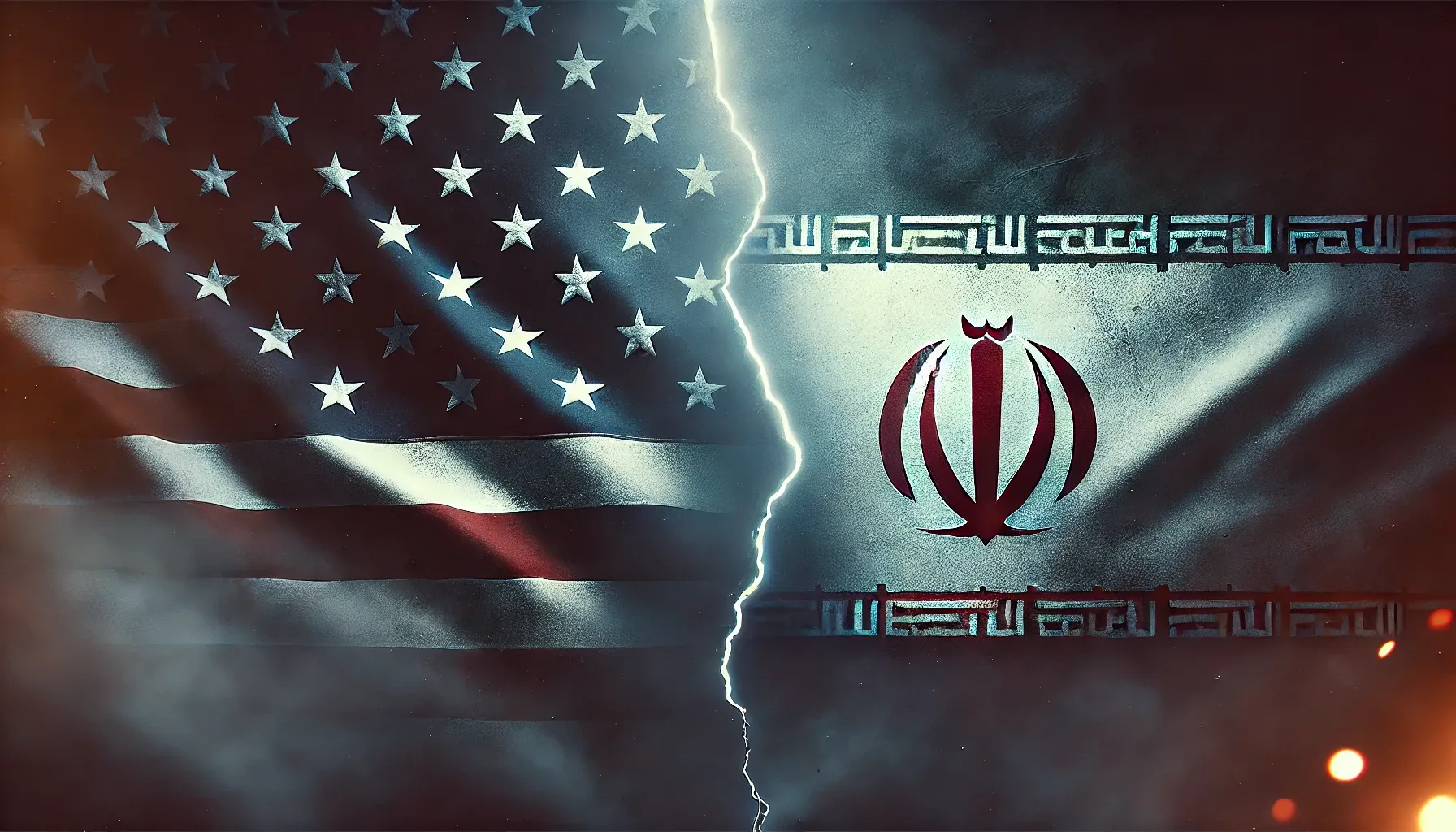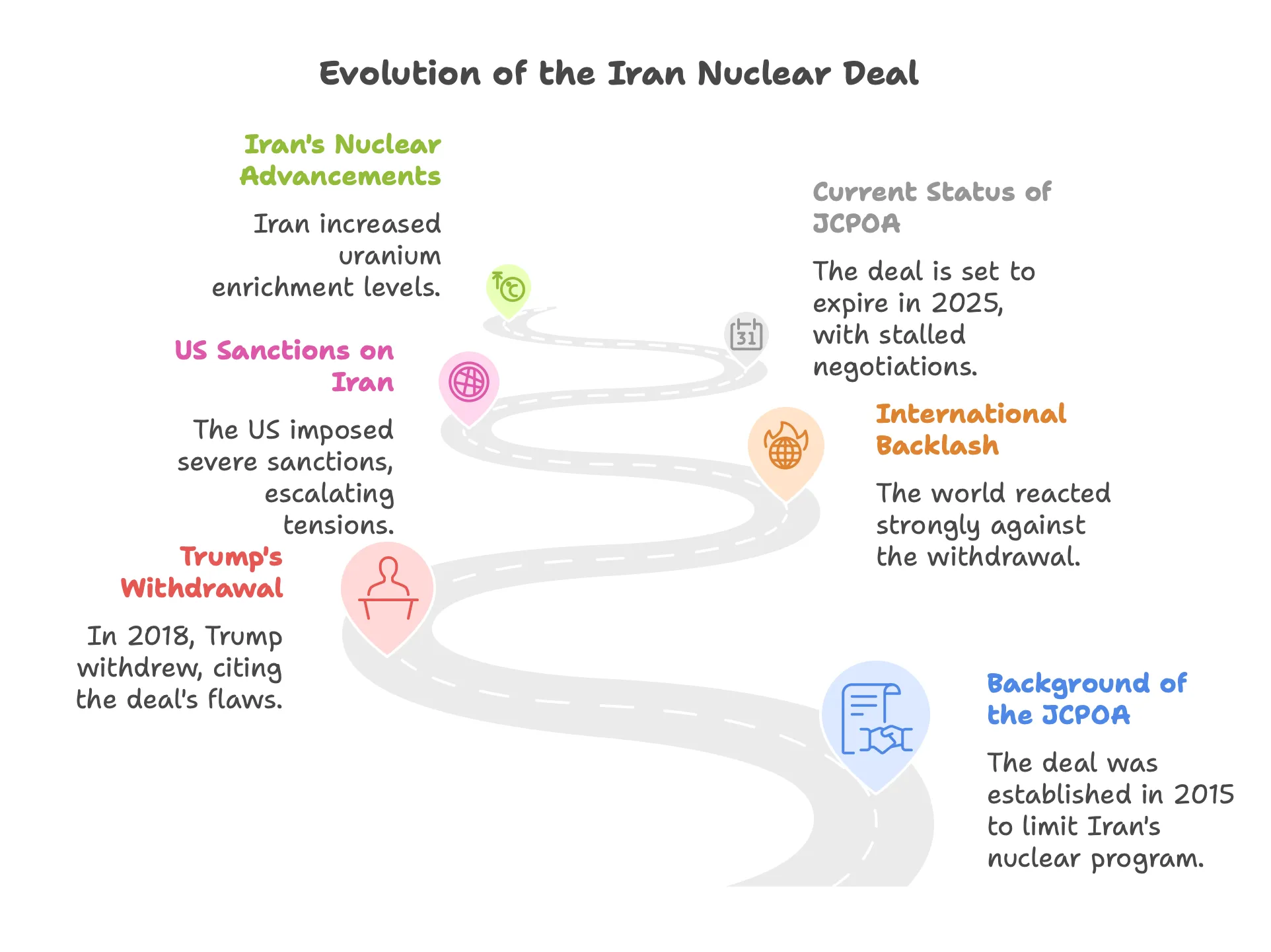Trump's Withdrawal from the Iran Nuclear Deal and Current Developments
Last Updated
12th March, 2025
Date Published
10th March, 2025
Share This Post With Someone

Background of the Iran Nuclear Deal (JCPOA)
Date Signed: 2015
Parties Involved: Five permanent members of the UN Security Council, Germany, the EU, and Iran.
Key Provisions:
• Sanctions relief for Iran in exchange for limiting its nuclear program.
• Iran agreed to restrict uranium enrichment to 3.67%, suitable for peaceful purposes.
Trump's Withdrawal in 2018
Reason for Withdrawal:
• Trump labeled the JCPOA as one of the "worst and most one-sided transactions" for the US.
• Criticised the deal for not addressing Iran's ballistic missile program and its regional influence.
International Reaction:
• Strong backlash from the international community.
• The IAEA confirmed Iran's compliance with the deal.
• European nations continued to support the JCPOA, implementing measures to protect their businesses in Iran.
Consequences:
• The US imposed over 1,500 sanctions on Iran, leading to a significant rollback of Iran's commitments by 2019.

Current Status of the JCPOA (2025)
Expiry: The JCPOA is set to technically expire in October 2025.
Negotiations:
• The Biden administration attempted indirect negotiations in 2021, but these stalled.
• Iran's economy faced severe challenges, leading to public discontent and increased nuclear activity.
Iran's Nuclear Advancements:
• By 2021, Iran announced uranium enrichment levels of 61%.
• Ongoing tensions with Israel and support for Russia in the Ukraine conflict complicated negotiations.
Trump's Recent Shift in Approach (2025)
Economic Crisis in Iran: The Iranian economy is struggling, prompting a willingness to engage with the US.
New Iranian Leadership: President Masoud Pezeshkian's administration is seeking sanctions relief and diplomatic engagement.
Regional Dynamics:
• Iran's influence through proxies remains strong, complicating the geopolitical landscape.
• A rapprochement between Iran and Gulf states is emerging, altering the Middle Eastern dynamics.
Challenges Ahead
Trust Deficit: Significant mistrust exists between Washington and Tehran, with both sides blaming Trump for the JCPOA's collapse.
Negotiation Hurdles:
• Any new agreement must address the sunset clauses of the original deal, which Trump opposed.
• The potential for a new deal hinges on Iran's response to US overtures and the broader regional context.
Conclusion
Trump's recent comments on renegotiating the nuclear deal reflect a changing Middle Eastern landscape, influenced by Iran's economic struggles and shifting alliances.
However, the path to a new agreement remains fraught with challenges, particularly regarding trust and the original deal's contentious provisions.